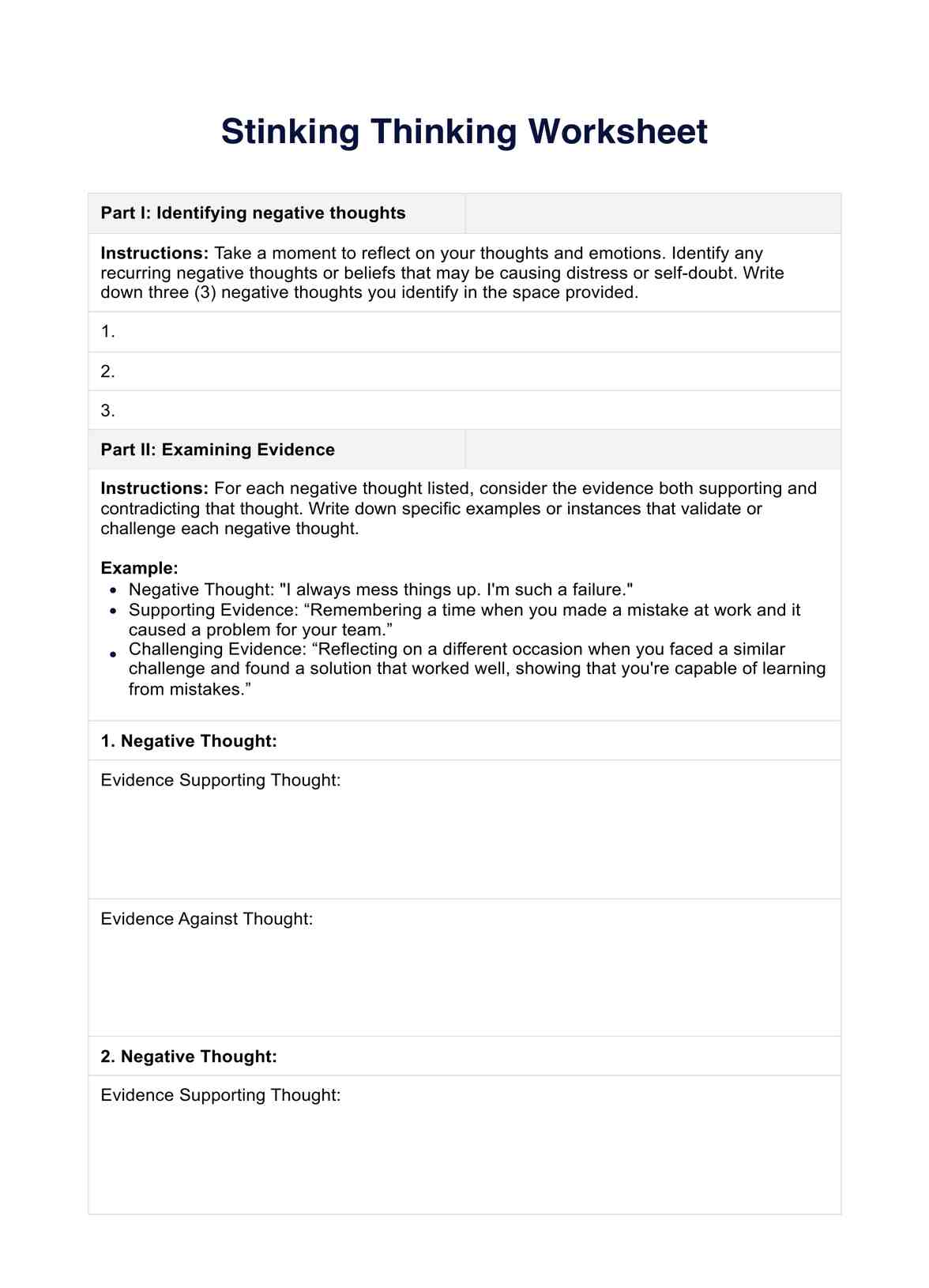Various factors can influence stinking thinking, including past experiences, cognitive biases, and learned behaviors.

Stinking Thinking Worksheet
Download our Stinking Thinking Worksheet to help clients challenge negative thoughts and cognitive distortions.
Use Template
Stinking Thinking Worksheet Template
Commonly asked questions
Yes, stinking thinking can contribute to negative emotions, low self-esteem, and mental health issues if left unchecked.
With practice and effort, individuals can learn to recognize and challenge their stinking thinking patterns, leading to more positive and adaptive thought processes.
EHR and practice management software
Get started for free
*No credit card required
Free
$0/usd
Unlimited clients
Telehealth
1GB of storage
Client portal text
Automated billing and online payments











